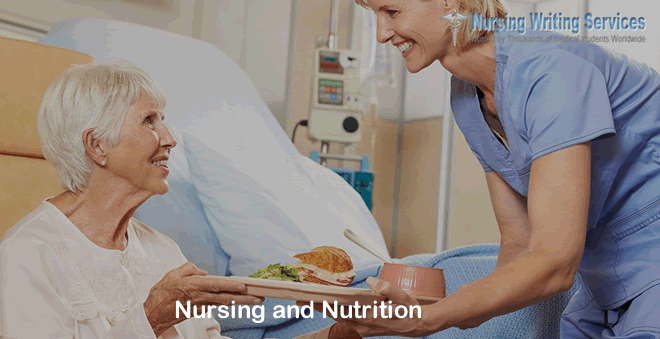
Nursing and Nutrition
Nurses do not just care and help in the treatment of patients. It is also necessary for them to offer education on how to prevent diseases. A proper diet is essential for recuperating patients and other people intending to promote wellness in their lives. An understanding of nutrition is vital for nurses.
Most nurses take at least one basic nutrition course during their studies. There is no much emphasis as other courses. It is the same situation for medical doctors as they only get a brief exposure to nutrition. The focus of nursing and medical curriculum is more on treatment. Many people associate diet studied with holistic or alternative medicine, but it is important especially for nurses to gather more knowledge on the subject for the following reasons:
Nutrition supports health for nurses
One of the good reasons for nurses to be well-informed about nutrition is for their well-being and health. Nursing is an energy draining and sometimes stressful career. They work long hours, perform numerous tasks and are in the company of patients suffering from various illnesses which can affect the immune system. For a nurse to perform optimally, it is essential to maintain high standards of health. Nutrition is good starting point There in increasing evidence showing that diet is crucial in prevention and managing illnesses.
Improving quality of care for patients
In a clinical setting, physicians’ issue orders for the particular type of food in the same way they write requests for treatment and medication Knowledge of nutrition is essential for nurses working under a physician as they should know about the significance of every diet. A nurse should be aware the components of a diet to handle instances such as when a patient on clear liquid diet wants to take milk. It is unsafe so the nurse has to explain to the patient the reason for keeping way from milk something that everyone knows in nutritious but can take dairy products. Knowledge on nutrition is also essential to help patients with long-term conditions such as diabetes to know the foods to eat and avoid.
Are you a nursing student looking for the best nursing writing services? Look no further! Our expert writers can help you with your nursing assignment today.
Managing effect of medication and therapy
A sound understanding of nutrition also plays a crucial role when it is time to review patient's medication lists. For instance, when treating patients with a therapy to prevent blood clotting, it is essential to keep the off foods with vitamin K like leafy green vegetables because they decrease the beneficial effect of blood thinners. Some foods like grapefruits or those with tyramine may interfere with medication therapies. Draft beer, aged cheeses, and soy sauce are some of the food substances that contain tyramine a building block of proteins or amino acid. It is important for nurses to understand nutrition as it is a fundamental component of discussion for patients starting new medication to ensure that drug administration is safe.
Improving Preventive care
Nurses spend longer time with patients than doctors and other healthcare professionals. They continually engage in teaching moments, especially about preventive care. For instance, a nurse may have to teach patients from a family with a history of high blood pressure about healthy choices such as taking low-sodium diet as it can slow the onset of this condition. Nurses may also help in reviewing the current diet for their patients to pinpoint areas where they need to make healthier food selection. Although nursing may not have many backgrounds in nutrition, a nurse can remedy this by performing a personal study and even take courses in the subject. They can do it by choosing a course such as electives. If you have formal training in nutrition, it will be easy to combine your knowledge of these two disciplines for better nursing practice.

